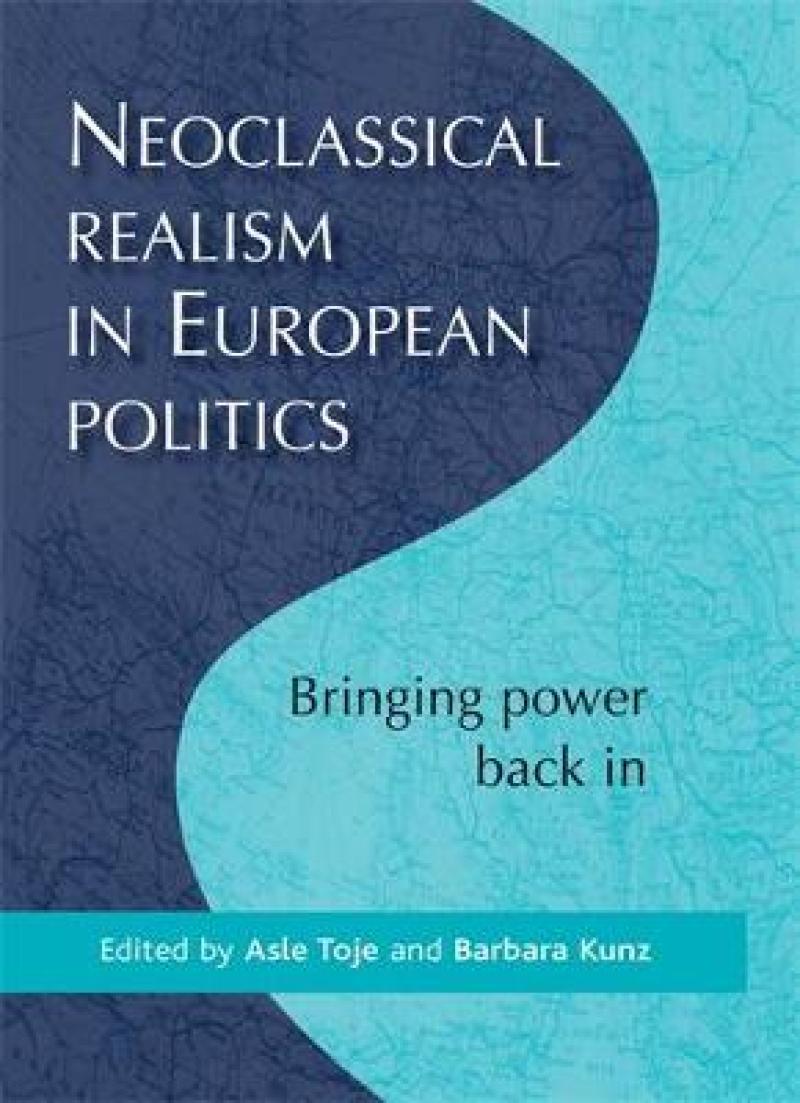<p>In their effort to introduce neoclassical realism to the European audience, the scholars in this book trace its relationship to classical realism and its European roots, reinvigorating the scholarly debate on the timeless wisdom of realism and eventually offering a thought-provoking work.<br /><br />(Revecca Pedi (University of Macedonia, Thessaloniki) Political Studies Review, May 2014</p>
- .,
Realism is making a comeback in Europe. This book brings together a new generation of realist scholars. It provides a rigorous survey for specialists seeking to understand the dynamics of international relations in a time of change. The volume thus seeks to explore the European dimension to neoclassical realism. The hope with this book is that it will spark a debate that, in time, might lead to the re-emergence of a distinctly European realist school which draws on the roots of the historical, non-American realist tradition, benefiting from insights in the liberal-constructivist paradigm. Through detailed case studies, the book illustrates that power and influence remain fruitful, even indispensable variables through which to understand the formation of foreign policy.
Les mer
Provides a concise, provocative analysis of understanding relations at a time when the international system is in transition from unipolarity to multipolarity. In exploring the tenets of neoclassical realism, this work reasserts traditional ways of understanding international politics in terms of power and influence.
Les mer
1. Introduction: neoclassical realism in Europe Asle Toje, Barbara Kunz and Michael Agner 2. Realism – a distinctively European academic tradition Torbjørn L. Knutsen 3. The tradition of neoclassical realism Alexander Reichwein 4. Neoclassical realism and power Brian C. Schmidt and Thomas Juneau 5. Ideas of power and the power of ideas Nicholas Kitchen 6. External and domestic determinants of state behaviour Barbara Kunz and Ilai Z. Saltzman 7. Raymond Aron: a neoclassical realists before the label existed? Dario Battistella 8. Explaining European military intervention in Africa: a neoclassical realist perspective Catherine Gegout 9. The rise and fall of CSDP: bringing strategic culture back in Jean-Yves Haine 10. Looking after the ‘European’ interest? Neoclassical realism and the European Union’s engagement with Sub-Saharan Africa Patrick Holden 11. Hegemony by invitation: neoclassical realism, soft power and US-European relations Felix Berenskoetter and Adam Quinn 12. Towards neoclassical realist thinking in Russia? Tatiana Romanova and Elena Pavlova
Les mer
Neoclassical Realism in Europe: bringing power back in provides a concise, provocative analysis of understanding relations at a time when the international system is in transition from unipolarity to multipolarity. In exploring the tenets of neoclassical realism, this work reasserts traditional ways of understanding international politics in terms of power and influence. The relevance of this is in empirical case studies related to key questions in European foreign and security politics. By viewing European integration from a realist vantage point, the work challenges established orthodoxy that emphasises the alleged sui generis nature of the EU which can only be understood by sui generis theoretical constructs – a notion that goes against the very essence of theorising. Through detailed case studies, the book illustrates that power and influence remain fruitful, even indispensable variables through which to understand foreign policy formation. The volume illustrates the continued relevance of the most established international relations theory and that this perspective is not mutually exclusive, but rather complimentary with the dominance of liberal theories (in America) and social constructivism (in Europe). The findings of the study have important implications for the understanding of the logic of integration and of the EU as a foreign policy actor. Neoclassical Realism in Europe: bringing power back in is designed for use in courses on international relations theory and European Studies. It also provides a rigorous survey for specialists seeking to understand the dynamics of international relations in a time of change.
Les mer
Produktdetaljer
ISBN
9780719083525
Publisert
2012-07-31
Utgiver
Vendor
Manchester University Press
Høyde
234 mm
Bredde
156 mm
Aldersnivå
P, 06
Språk
Product language
Engelsk
Format
Product format
Innbundet
Biografisk notat
Asle Toje is functioning Research Director at the Norwegian Nobel Institute
Barbara Kunz (D.Phil) is a Project Manager at the Bertelsmann Stiftung, Germany
